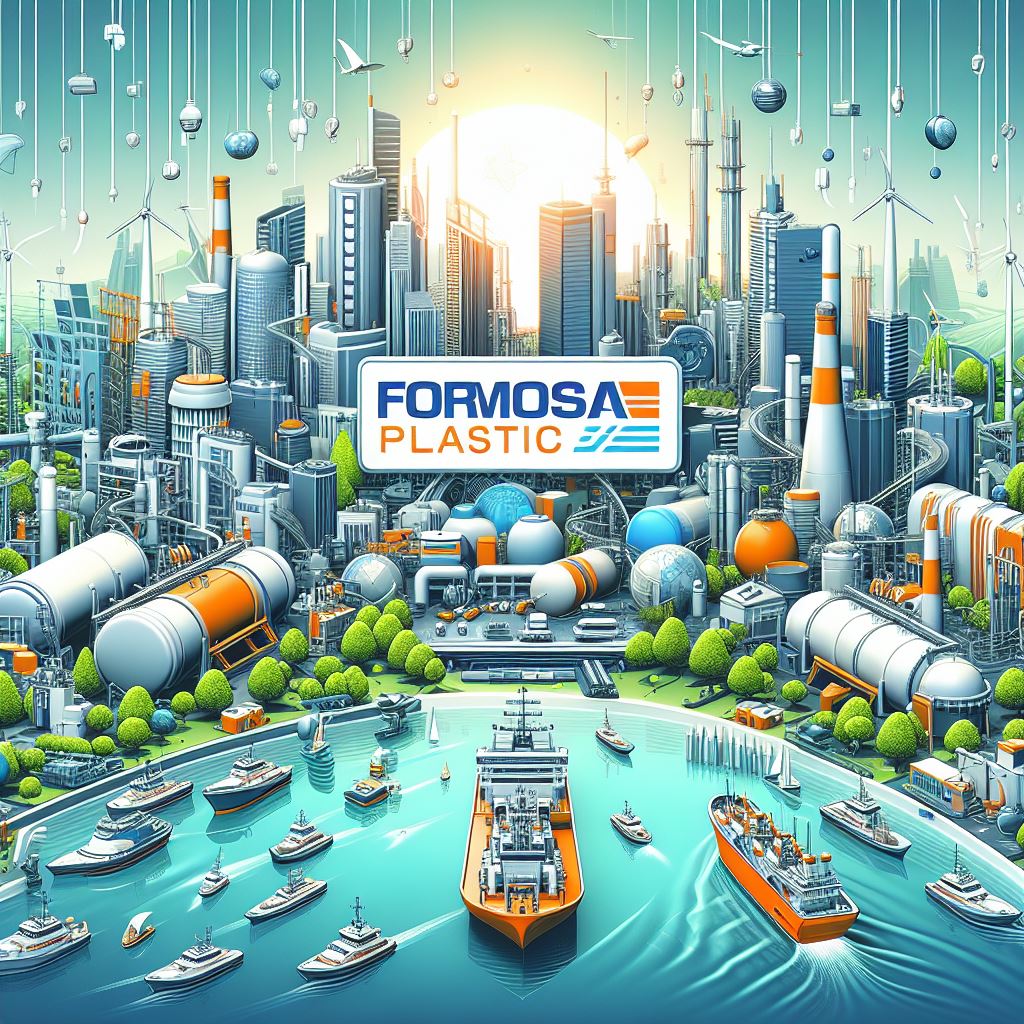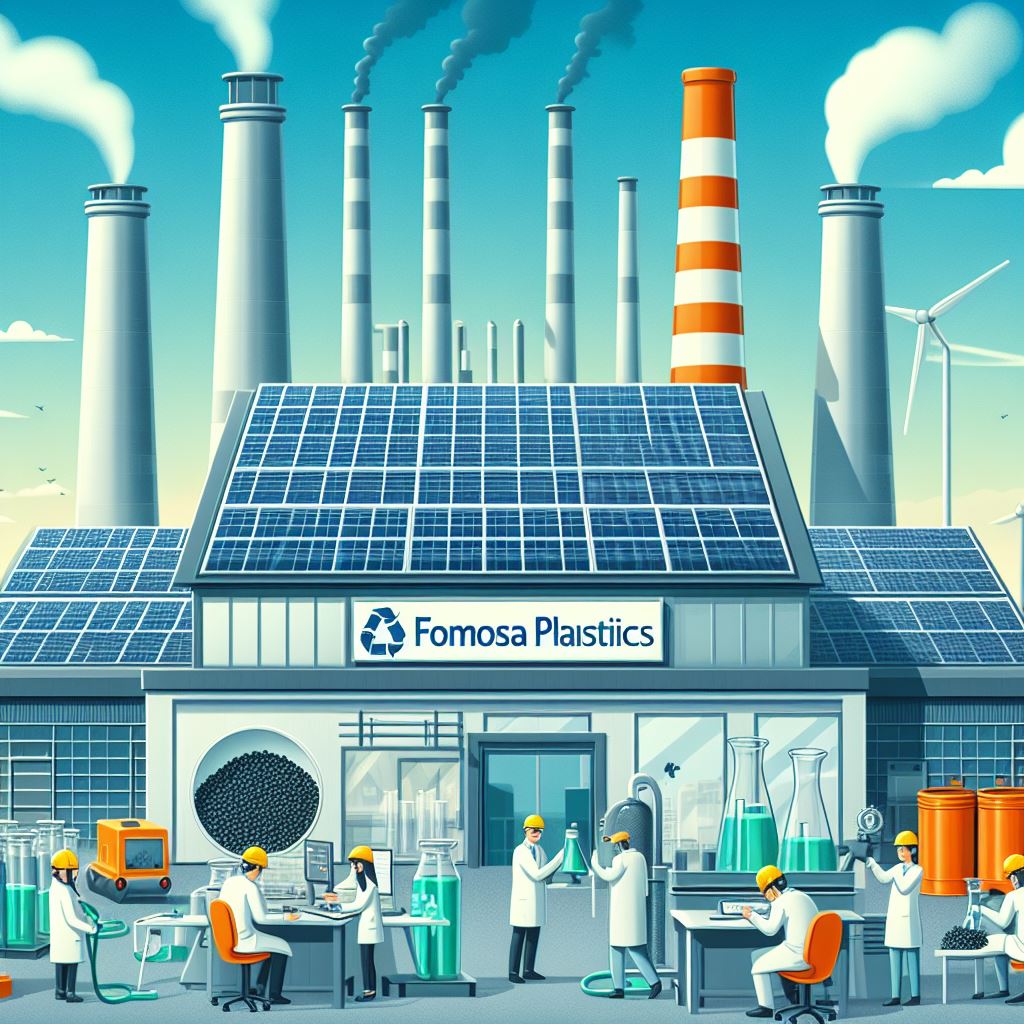Overview of Formosa Plastics
Formosa Plastics Corporation stands as a prominent player in the petrochemical assiduity, particularly in the product of plastic and chemical products. innovated in 1954 in Taiwan, it has grown into a global enterprise with a significant presence in Asia, North America, and Europe. With a commitment to invention and sustainability, Formosa Plastics has deposited itself as a crucial contributor to the assiduity’s elaboration.
Environmental Impact of the Plastic Industry
Plastic assiduity, while vital for colorful sectors, poses environmental challenges, substantially related to plastic waste and its impact on ecosystems. Formosa Plastics, being a major player, faces scrutiny and responsibility to address these challenges.
The product of plastic involves the birth of fossil energies, energy- ferocious processes, and the generation of non-biodegradable waste. Plastic pollution affects marine life, and terrestrial ecosystems, and contributes to broader environmental issues similar to climate change. Formosa Plastics acknowledges these enterprises and has taken significant ways to alleviate its environmental footmark.
Sustainability Initiatives by Formosa Plastics
1. Waste Reduction
Formosa Plastics has enforced comprehensive waste reduction strategies. These include optimizing product processes to minimize waste generation and investing in exploration and development to produce further sustainable products. By espousing indirect frugality principles, the company seeks to ensure that its products have a minimum environmental impact throughout their life cycle.
2. Energy Efficiency
Feting the energy-ferocious nature of the petrochemical product, Formosa Plastics has invested in energy-effective technologies. This not only reduces functional costs but also lowers the carbon footmark associated with its manufacturing processes. From advanced process control systems to renewable energy integration, the company is committed to sustainable energy practices.
3. Recycling Programs
Formosa Plastics laboriously promotes recovering enterprise. This involves not only incorporating recycled accouterments into its manufacturing processes but also uniting with stakeholders to enhance the recycling structure. By engaging with the entire value chain, from product to consumption to recycling, Formosa Plastics aims to produce an unrestricted- circle system for plastic accouterments.
Environmental Certifications of Formosa Plastics
Formosa Plastics has been honored for its commitment to environmental sustainability through colorful instruments and awards. One notable instrument is the ISO 14001 Environmental Management System, which signifies the company’s adherence to transnational norms in managing its environmental impact. also, the Responsible Care ® instrument underscores its fidelity to the safe and sustainable running of chemicals.
These instruments not only validate Formosa Plastics’ sweats but also serve as marks for the assiduity, encouraging others to borrow analogous practices.
Collaboration and Partnerships of Formosa Plastics
Working with complex environmental challenges requires collaboration. Formosa Plastics has laboriously engaged in hookups with environmental associations, exploration institutions, and governmental bodies to address participating enterprises. One notable illustration is its collaboration with the Ocean Conservancy to combat marine plastic pollution. This cooperation involves backing exploration, supporting remittal sweats, and championing policy changes to reduce plastic waste entering abysses.
similar collaborations demonstrate Formosa Plastics’ commitment to being part of broader results that extend beyond its operations.
Future Plans

1. Innovative Projects
Formosa Plastics is investing in innovative projects to revolutionize the plastics industry. One such initiative involves exploring biodegradable plastics derived from renewable resources. By shifting away from fossil fuels and traditional plastics, the company aims to provide sustainable alternatives without compromising performance.
2. Advanced Technologies
The integration of advanced technologies, such as artificial intelligence and data analytics, is part of Formosa Plastic’s plans. These technologies enable more precise control of manufacturing processes, leading to increased efficiency and reduced environmental impact.
3. Sustainable Product Development
Formosa Plastics is committed to developing products that align with the principles of a circular economy. This includes designing products for recyclability, promoting the use of recycled materials, and exploring alternative materials that are more environmentally friendly.
Life Cycle Assessment
Life Cycle Assessment (LCA) is a systematic analysis of the environmental impact of a product throughout its life cycle, from raw material extraction to end-of-life disposal. Formosa Plastics incorporates LCA into its sustainability practices by conducting comprehensive assessments of its products. This allows the company to identify hotspots in the life cycle where improvements can be made.
For example, when producing a plastic product, Formosa Plastics assesses the environmental impact of raw material extraction, transportation, manufacturing processes, product use, and end-of-life management. By understanding the entire life cycle, the company can make informed decisions to minimize its environmental footprint.
Water Management
1. Water Conservation Measures
Formosa Plastics recognizes the importance of responsible water management. The company has implemented water conservation measures in its manufacturing processes, such as optimizing cooling systems and recycling water where possible. By reducing water consumption, Formosa Plastics contributes to the preservation of this vital resource.
2. Wastewater Treatment Processes
To address concerns about wastewater discharge, Formosa Plastics employs advanced wastewater treatment processes. These processes aim to remove pollutants and ensure that water released from manufacturing facilities meets or exceeds regulatory standards. By investing in state-of-the-art treatment technologies, Formosa Plastics minimizes its impact on local ecosystems.
Community Engagement
Formosa Plastics understands the significance of community engagement in fostering positive relationships and addressing concerns. The company actively engages with local communities through:
1. Environmental Education
Formosa Plastics supports environmental education initiatives, providing resources and expertise to educate local communities about sustainable practices. This includes partnerships with schools, community organizations, and government agencies to promote environmental awareness.
2. Addressing Community Concerns
Open communication is vital for addressing community concerns. Formosa Plastics holds regular meetings with community members to discuss environmental impact, and safety measures, and address any issues raised by the community. This transparency helps build trust and ensures that local concerns are taken into account in decision-making processes.
Circular Economy of Formosa Plastics
Formosa Plastics embraces the principles of the circular economy by promoting:

1. Reuse
Designing products for reuse is a key aspect of Formosa Plastics’ approach. By creating durable and long-lasting products, the company aims to extend the life cycle of its materials and reduce the overall demand for new resources.
2. Recycling
Formosa Plastic actively supports recycling initiatives. This includes collaborating with recycling facilities, advocating for improved recycling infrastructure, and incorporating recycled materials into its production processes. By promoting recycling, the company contributes to the reduction of plastic waste.
3. Repurposing
Exploring innovative ways to repurpose plastic materials is part of Formosa Plastic’s commitment to the circular economy. This involves researching and developing new applications for recycled plastics, turning waste into valuable resources.
Transparency and Reporting
Formosa Plastic places a strong emphasis on transparency and reporting as part of its commitment to accountability. The company:
1. Environmental Data Disclosure
Regularly discloses environmental performance data, including key metrics related to energy consumption, greenhouse gas emissions, and water usage. This data is made available to the public, regulators, and stakeholders, demonstrating Formosa Plastic’s commitment to openness.
2. Stakeholder Engagement
Actively engages with stakeholders, including customers, employees, local communities, and environmental organizations. This engagement involves seeking feedback, addressing concerns, and incorporating stakeholder perspectives into decision-making processes.
3. Sustainability Reports
Publishes annual sustainability reports that provide a comprehensive overview of the company’s sustainability initiatives, goals, and performance. These reports serve as a transparent account of Formosa Plastic’s progress and challenges in the journey toward environmental sustainability.
Follow Up Questions
1. Challenges in Plastic Waste Management – Formosa Plastics
Formosa Plastic has addressed challenges in plastic waste operation through a multifaceted approach. This includes investing in exploration and development to produce further sustainable products, laboriously promoting recycling enterprise, and uniting with stakeholders to enhance the recycling structure. By espousing indirect frugality principles, the company aims to minimize its donation to plastic waste and produce an unrestricted- circle system for its products.
2. Innovative Projects and Technologies – Formosa Plastics
Formosa Plastic has enforced innovative systems to reduce its environmental impact. One similar action involves exploring biodegradable plastics deduced from renewable coffers. also, the integration of advanced technologies, such as artificial intelligence and data analytics, enhances the company’s capability to control manufacturing processes with perfection, leading to increased effectiveness and reduced environmental impact.
3. Safety and Security in Operations – Formosa Plastics
Formosa Plastic ensures the safety and security of its operations through rigorous adherence to safety protocols and assiduity norms. This includes investing in advanced technologies to cover and control manufacturing processes, conducting regular safety checkups, and furnishing expansive training for workers. The company maintains a balance between functional safety and sustainability by integrating the rearmost technologies and stylish practices in both areas.
4. Collaborations and Partnerships – Formosa Plastics
Formosa Plastic has established notable collaborations and hookups to promote environmental sustainability. One similar collaboration is with the Ocean Conservancy to combat marine plastic pollution. This cooperation involves backing exploration, supporting remittal sweats, and championing policy changes to reduce plastic waste entering abysses. These collaborations demonstrate Formosa Plastic’s commitment to being part of broader results that extend beyond its operations.
5. Measurement and Tracking of Sustainability Goals – Formosa Plastics
Formosa Plastic employs a methodical approach to measure and track its progress towards sustainability pretensions. This includes conducting comprehensive life cycle assessments of its products to identify environmental hotspots and enforcing crucial performance pointers( KPIs) related to energy effectiveness, waste reduction, and water operation. Regular sustainability reports give stakeholders transparent perceptivity into the company’s sustainability trip.
In summary, Formosa Plastic’s commitment to environmental sustainability and commercial responsibility is apparent in its comprehensive approach to addressing the challenges posed by plastic assiduity. Through waste reduction, energy effectiveness, recycling programs, and innovative systems, the company is laboriously working towards a further sustainable future. Collaborations, community engagement, and a strong emphasis on translucency further highlight Formosa Plastic’s fidelity to creating a secure and strong environmental heritage.
Key Takeaways of Formosa Plastics
- Formosa Plastic, a global player in the plastics industry, actively addresses environmental challenges.
- Sustainability initiatives include waste reduction, energy efficiency, and recycling programs.
- Environmental certifications validate Formosa Plastic’s commitment to sustainability.
- Collaborations with organizations like the Ocean Conservancy showcase a commitment to broader solutions.
- Plans involve innovative projects, advanced technologies, and sustainable product development.
- Life Cycle Assessment is integral to identifying and mitigating environmental impacts.
- Water management includes conservation measures and advanced wastewater treatment processes.
- Community engagement and support for environmental education strengthen local relationships.
- Formosa Plastic contributes to the circular economy through reuse, recycling, and repurposing.
- Transparency and reporting mechanisms ensure accountability and stakeholder engagement.






Pingback: Polyvinyl Technology: The Future Is Here - Safe Climber Overseas Pvt. Ltd.